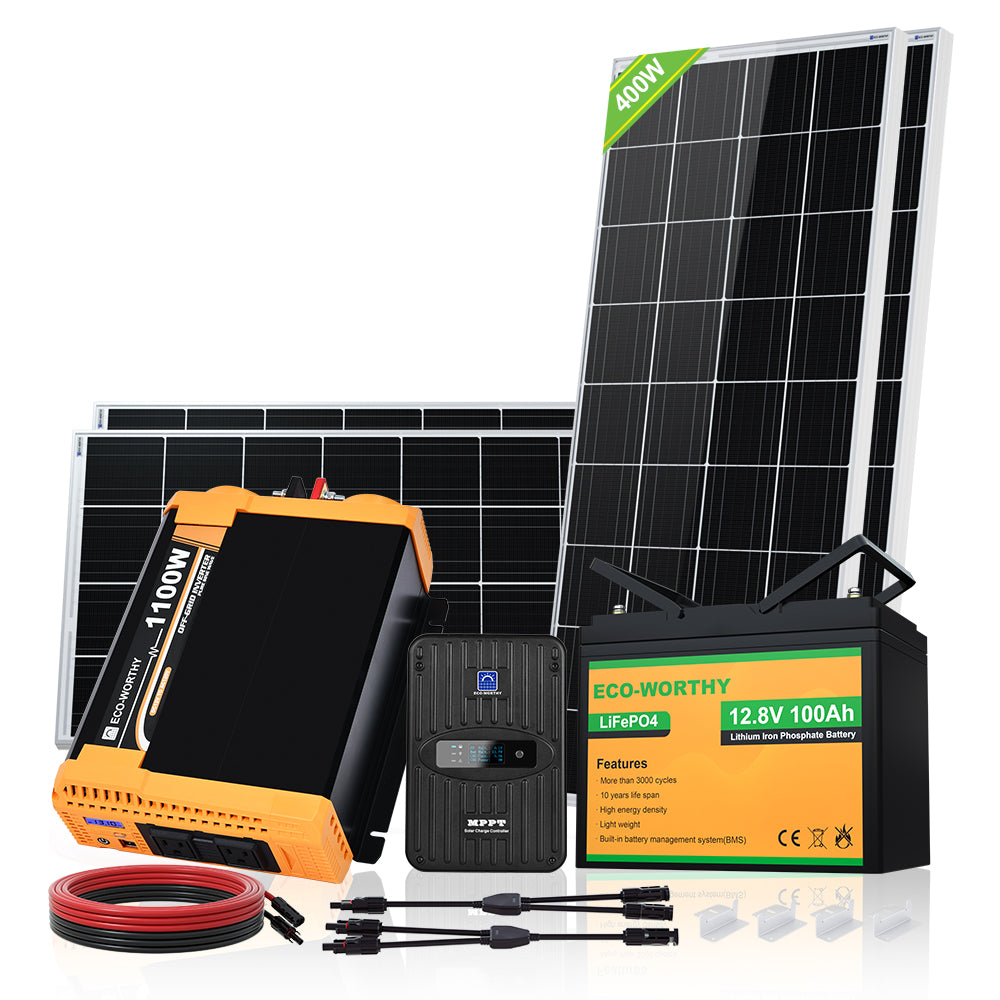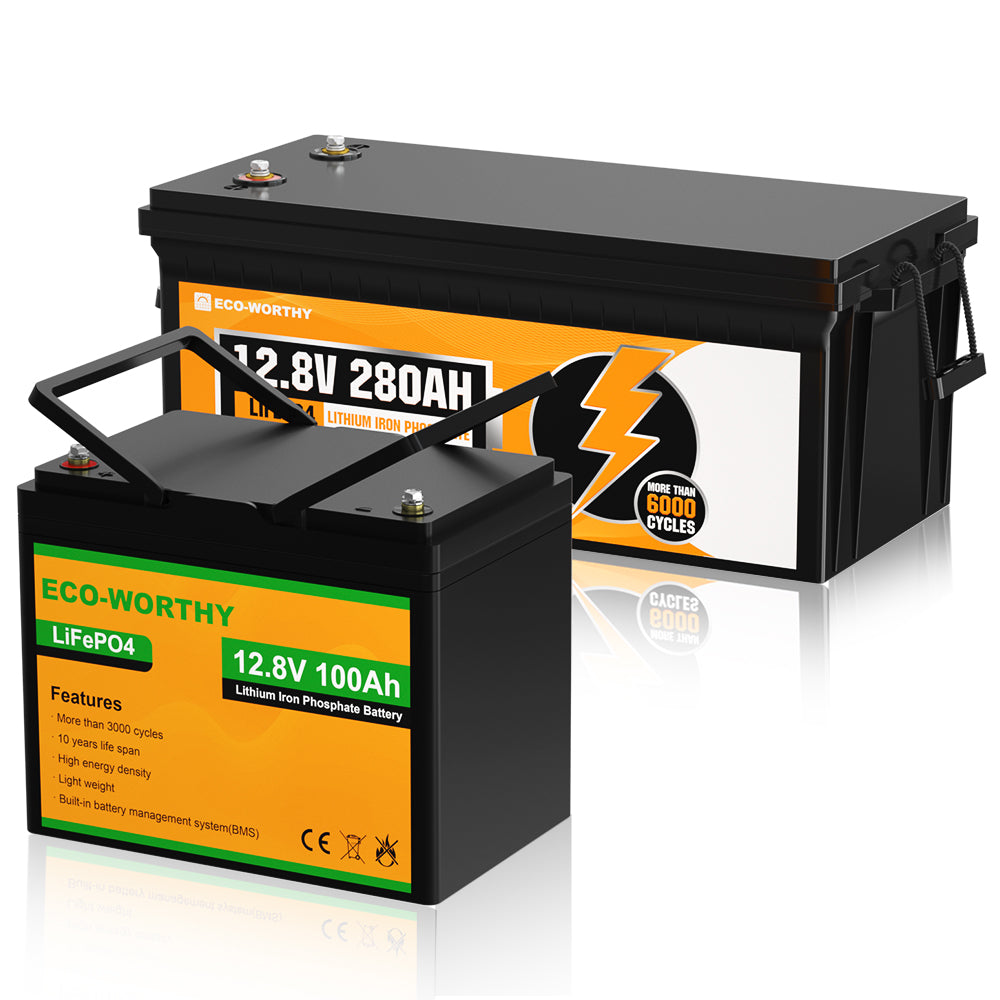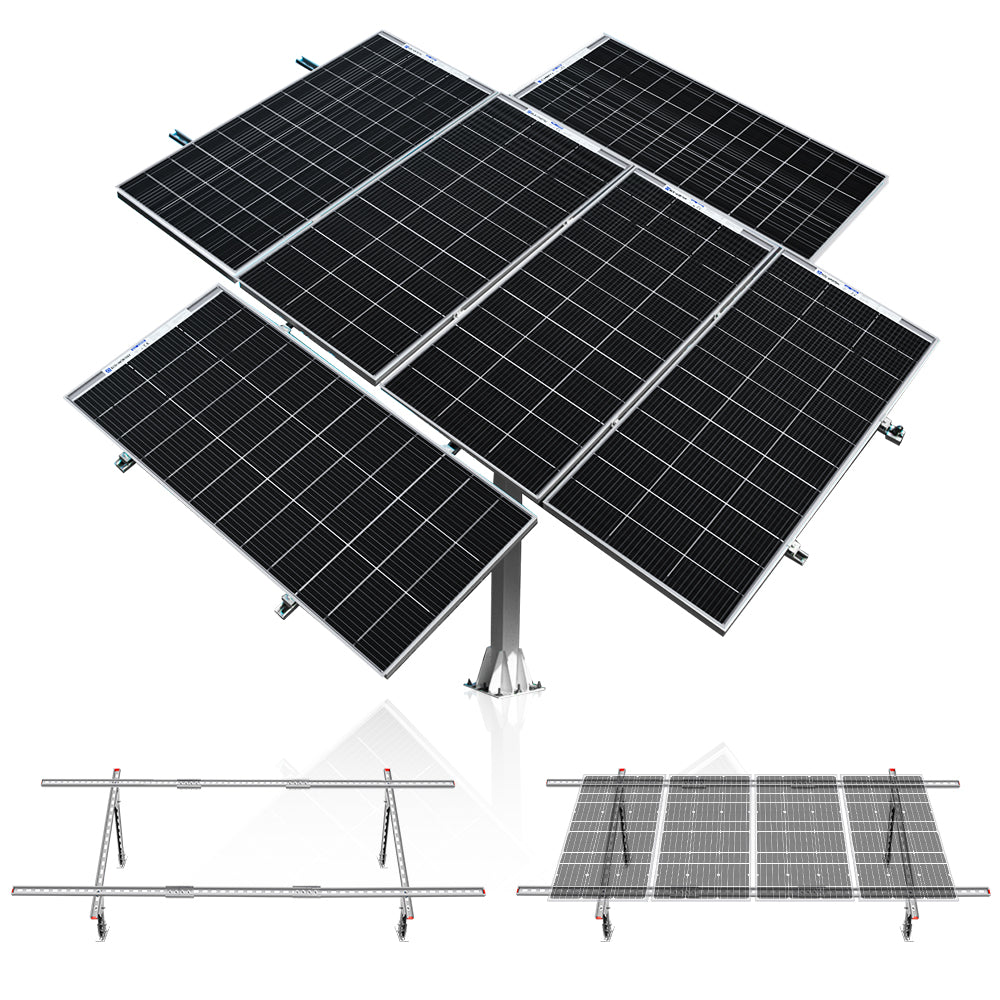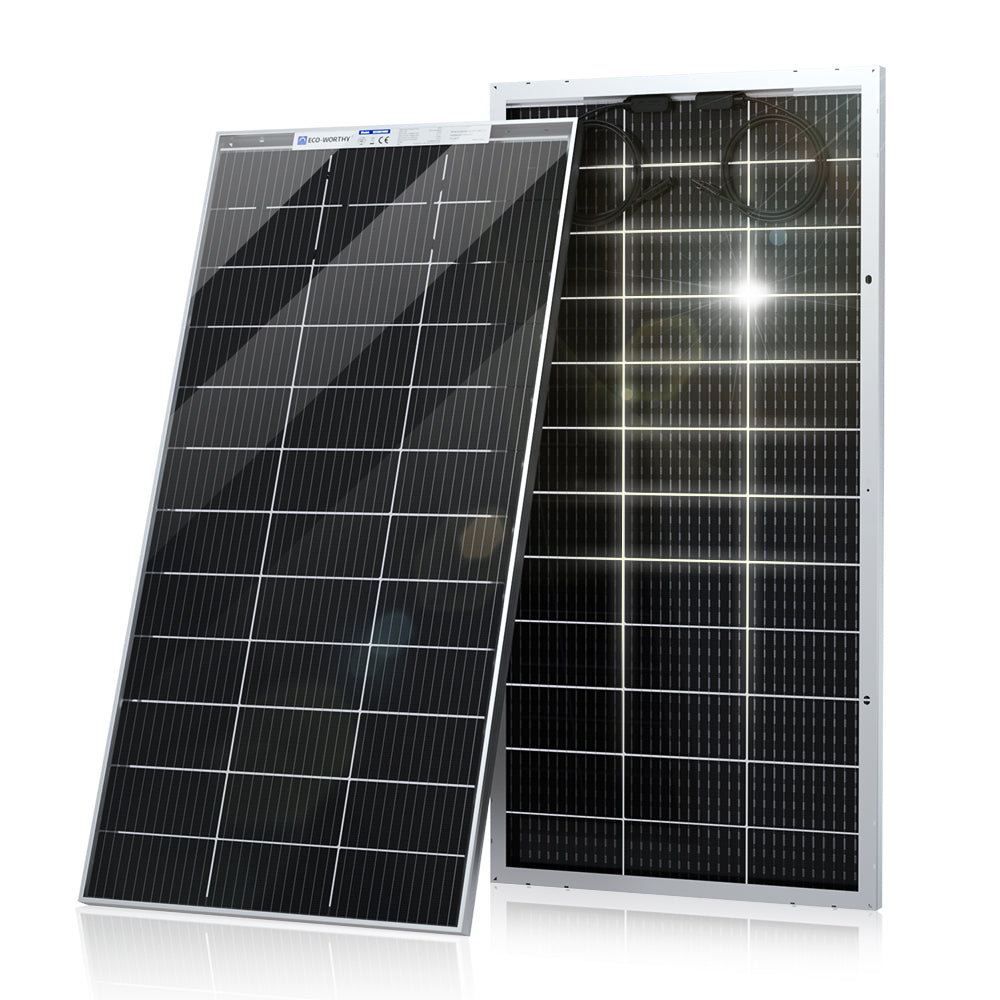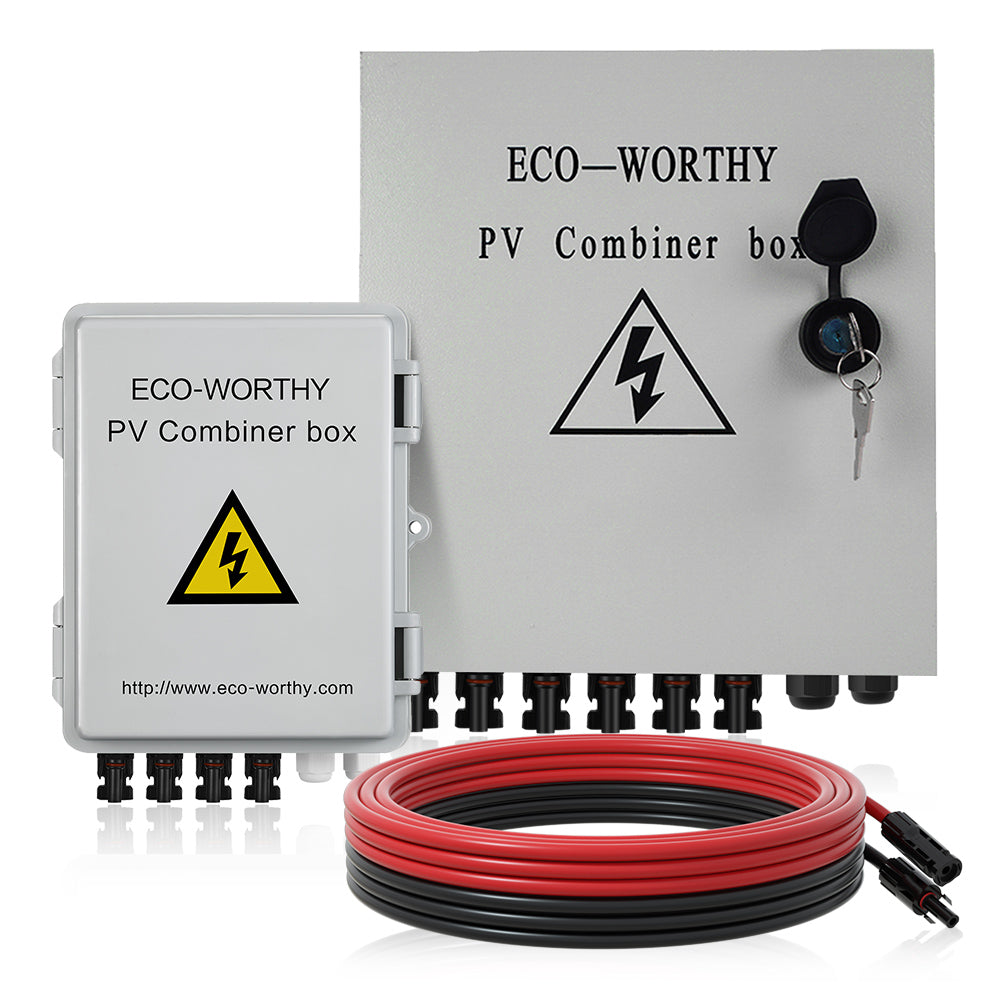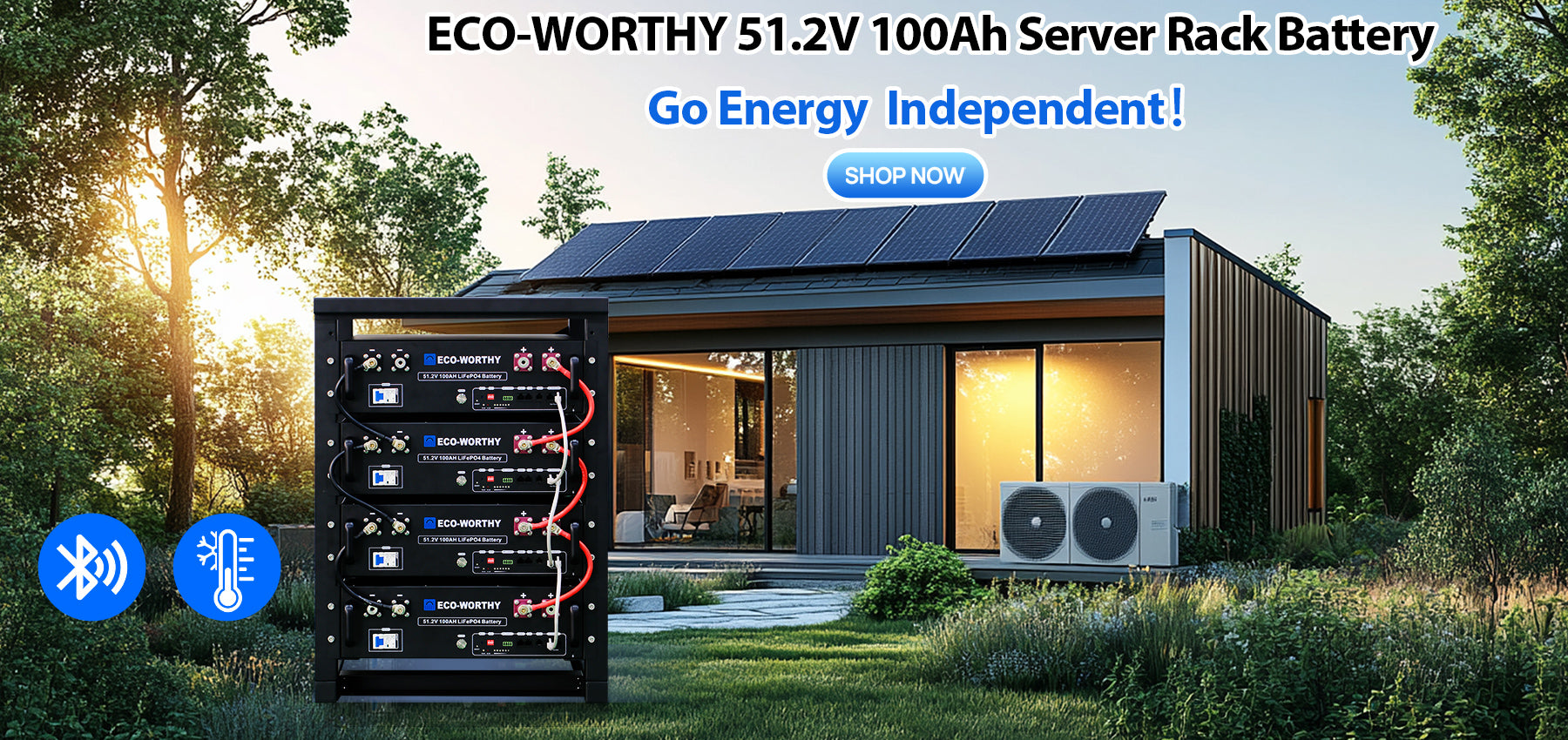The 12-volt LiFePO4 battery is a variant of lithium-ion technology that uses lithium iron phosphate (LiFePO4) as the cathode material. This advanced chemistry presents several benefits over conventional lead-acid batteries, making it a superior option for numerous applications. Available in various sizes and configurations, LiFePO4 batteries provide the versatility to meet various power needs.
Advantages of 12 Volt LiFePO4 Battery
The advantages of 12-volt LiFePO4 batteries can be attributed to their unique chemical composition and design. Let's look at some benefits that make them an excellent choice for various applications.
Extended Lifespan
One of the key advantages of LiFePO4 12V batteries is their extended lifespan compared to lead-acid batteries. While conventional lead-acid batteries typically last 300-500 charge cycles, LiFePO4 batteries can last up to 2000-5000, depending on the manufacturer and usage conditions. Additionally, lithium batteries are lighter than lead-acid batteries, weighing only one-third as much. This equates to significantly longer battery life, reducing the frequency of replacements and overall costs in the long run.
High Energy Density
The energy density of a battery refers to the amount of energy that can be stored per unit volume or weight. LiFePO4 12V batteries have a higher energy density than lead-acid batteries, meaning they can store more energy in a smaller, lighter package. This makes them an ideal choice for limited space and weight applications, such as in marine, RV, and off-grid power systems.
Rapid Charging
LiFePO4 12V batteries have a high charging efficiency, allowing them to charge much faster than lead-acid batteries. This is due to their low internal resistance and ability to handle higher charging currents without damaging the battery. With LiFePO4 batteries, you can recharge your power system quickly and efficiently, minimising downtime and maximising productivity.
Enhanced Safety
Safety is a significant concern when it comes to batteries, and LiFePO4 12V batteries offer several advantages over lead-acid batteries in this regard. Unlike lead-acid batteries, LiFePO4 batteries are non-toxic and non-flammable, making them safer for both the environment and users. They also have a lower risk of thermal runaway, which can occur in lead-acid batteries due to their sulfuric acid electrolyte.
Wide Temperature Tolerance
LiFePO4 batteries have a broader temperature range than lead-acid batteries, making them suitable for use in extreme environments. They can operate at temperatures as low as -20°C (-4°F) and as high as 55°C (131°F), while lead-acid batteries have a much narrower operating range. This makes LiFePO4 batteries an excellent choice for outdoor and off-grid applications, where temperatures vary significantly.
Capacity Options for 12V LiFePO4 Batteries
When selecting a 12V LiFePO4 battery, understanding the capacity options available is crucial to meet your specific power requirements. The LiFePO4 12V batteries come in various capacities, including 50Ah, 100Ah, and 150Ah, catering to different energy needs and usage durations.
- LiFePO4 12V 50Ah Lithium Battery: Ideal for smaller applications or where space and weight are critical factors, this battery provides a reliable power source without the bulk.
- LiFePO4 12V 100Ah Lithium Battery: This capacity is well-suited for medium-sized applications, offering a balance between longevity and performance, making it a popular choice for RVs and marine applications.
- LiFePO4 12V 150Ah Lithium Battery: For those requiring extended power supply or operating larger systems, the 150Ah battery offers extensive energy storage, ensuring that power is available when and where you need it most.
Comparison between 12 Volt and 24 Volt Batteries
When choosing a battery for your power system, you may come across both 12-volt and 24-volt LiFePO4 batteries. Both have advantages and limitations, and it is essential to understand the differences between them before making a decision.
Voltage Output
The most apparent difference between 12V and 24V LiFePO4 batteries is their voltage output. As the name suggests, a 12V battery produces 12 volts of power, while a 24V battery produces twice that amount at 24 volts. This voltage difference can impact your power system's overall performance and capabilities.
Power Capacity
In general, a 24V LiFePO4 battery will have a higher power capacity than its 12V counterpart. This means that a 24V battery can store and deliver more energy, making it suitable for larger or more demanding power systems.
Wiring and Installation
The higher voltage output of a 24V battery may require additional wiring and adjustments to your power system's setup. However, this may also result in reduced wire resistance and improved efficiency. On the other hand, a 12V battery may be easier to install and integrate into your existing system.
Compatibility
When choosing between 12V and 24V batteries, it is crucial to consider the compatibility with your power system's components. Some devices may only be compatible with one type of battery voltage, so checking before making a purchase is essential.
Cost
In general, 24V batteries are more expensive than 12V batteries due to their higher power capacity and capabilities. However, the initial cost may be offset by the longer lifespan and better performance of a 24V battery.
Conclusion
Utilising the appropriate voltage output battery is crucial in ensuring the efficiency and functionality of your power system. While 24V batteries may offer more power and capabilities, it is essential to consider factors such as compatibility and cost before making a decision. Choosing between 12V lithium batteries and 24V LiFePO4 batteries will ultimately depend on your specific power needs and system requirements. It is always recommended to consult with a professional or do thorough research before purchasing.

